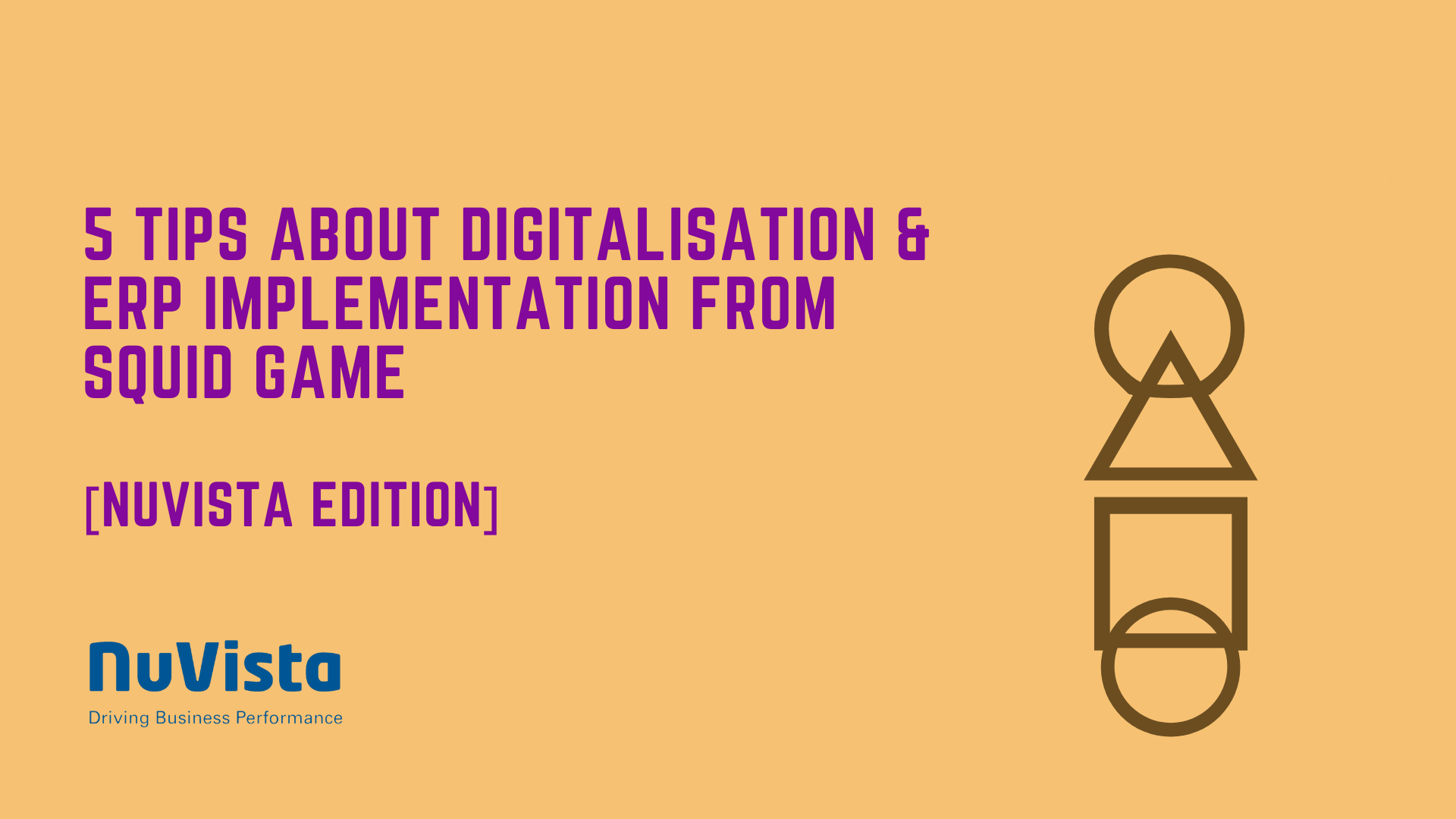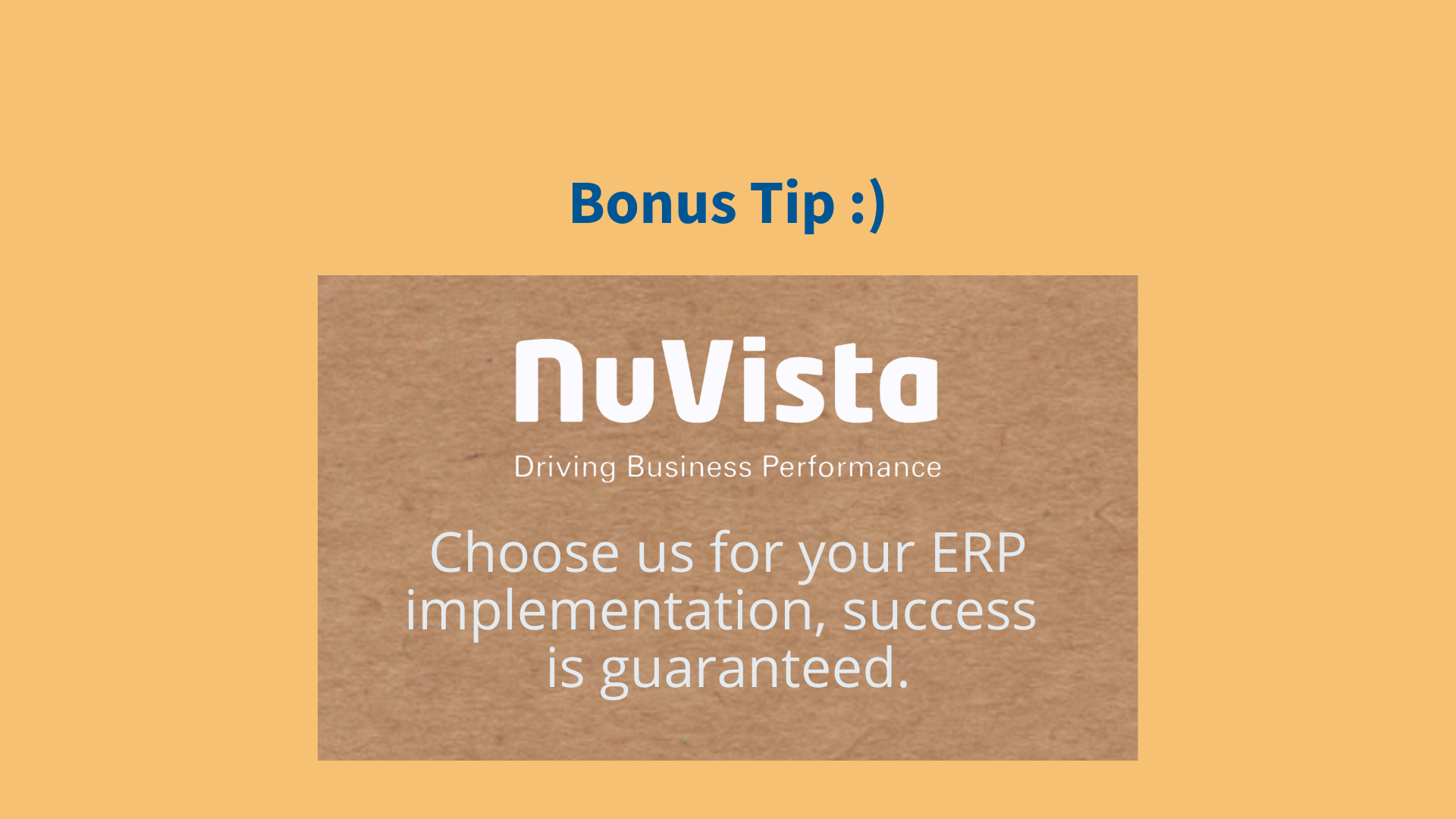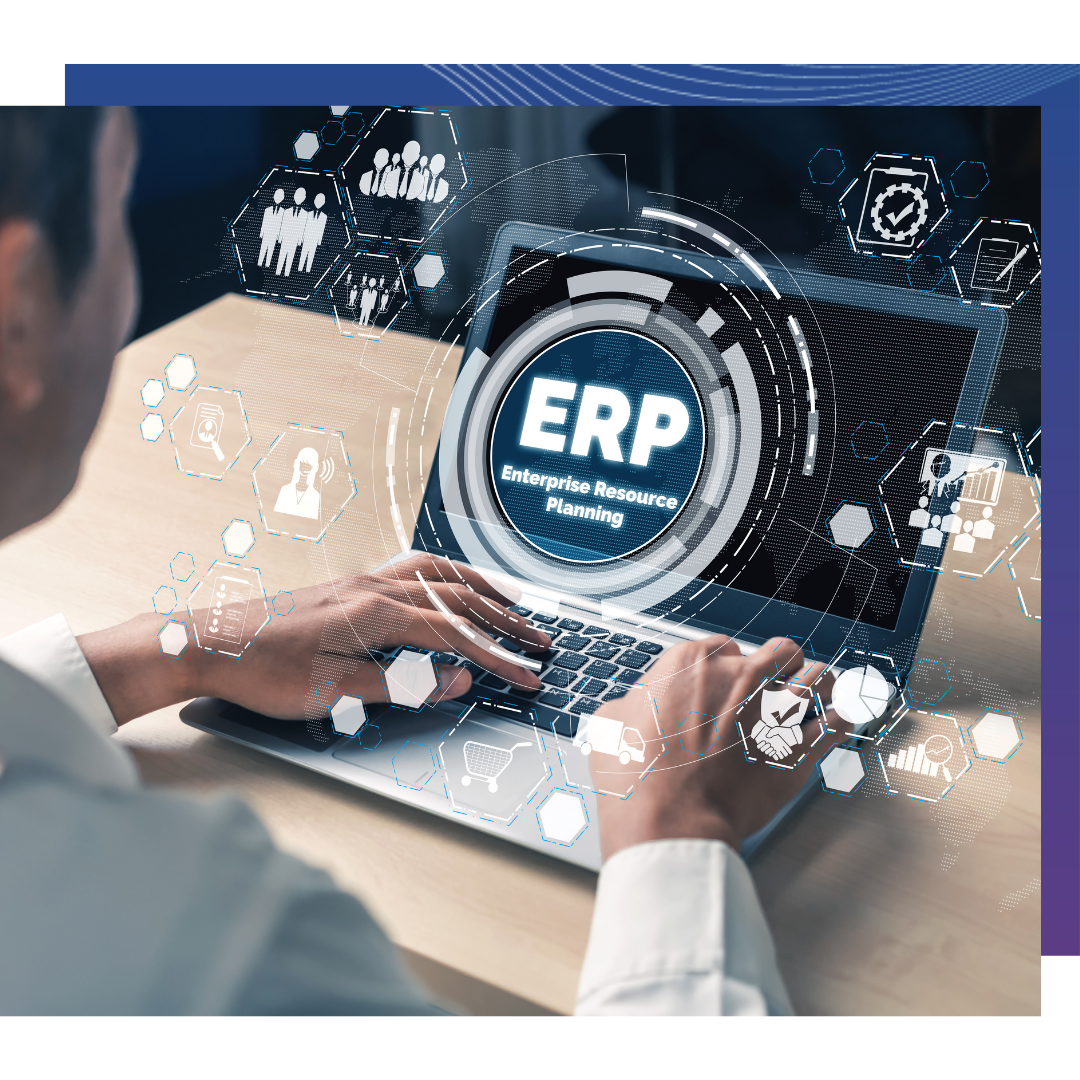Sample Code
You are looking for an ERP and wondering how much Oracle NetSuite is. What is the pricing structure? Is it for big companies only? What are some funding options? If you have such questions, you have come to the right place.
Companies like Canva and Go Pro have used NetSuite ever since they were a small company to becoming a big company as today. NetSuite is probably one of the most flexible ERPs out there that grows with you. As company grows, you simply adjust your NetSuite subscription size to meet your needs. You don’t have to worry about a system migration once you have outgrown your current edition. You just change your pricing model.
Read this article to understand the pricing models. Yes, each customer has different requirements, but we do our best to share what is involved in the costing according to your requirements – from NetSuite licenses, support to implementation.
What are the different parts to NetSuite pricing?
-
- NetSuite Licenses
- Core NetSuite Edition / Suite / Core ERP License
- Add on Modules
- Service Tier Upgrade
- NetSuite Sandbox
- NetSuite User Licenses
- NetSuite Implementation / Professional Services
- Base Implementation
- Customisations
- NetSuite Support
Delving deeper into NetSuite Licensing
NetSuite modules may be licensed in a la carte fashion, or they may be bundled together in the form of an industry suite. The cost of NetSuite modules and industry suites varies depending upon functionality and the edition type. Here is an overview of the 3 different editions offered by NetSuite.
1. Core NetSuite Edition / Suite / Core ERP License – Limited, Mid-Market, Enterprise
1. NetSuite Limited / Starter Edition
Ideal for small businesses that only have a single entity, and fewer than 50 employees. Not more than 10 user licenses are required. NetSuite Limited Edition starts around $1000 per month.
-
-
-
- Single legal entity
- Operate in one country
- Up to 50 employees
- Max 10 named users
- Defined scope of business operations
2. NetSuite Limited / Starter Edition
Most of our customers fall under the Mid-Market Edition. They have more than 10 named users and/or have 2 or more legal entities that need the ability to perform consolidated financial reports across multiple currencies. Comprehensive package that comes with additional modules that come with specific functionalities for your industry, handles multiple companies and consolidates financial reports. NetSuite Mid-Market Edition starts around $2,500 per month.
-
-
-
- More than 10 named users
- 51-999 employees
- Have two or more legal entities
- Operate in one or more countries
- Need to perform consolidated financial reports across multiple currencies
3. NetSuite Enterprise Solution
Ideal for companies with over 1000 named users. Get additional capacity, tons of modules with NetSuite OneWorld, for handling acquisitions and managing multiple subsidiaries in different currencies.
-
-
-
- Greater than 1000 users
- Multiple currencies and subsidiaries
- Have a large scope of operations
Base Modules that come with each Edition
CRM
-
-
-
- Marketing AutomationSales Force
- Automation (SFA)
- Case Management
- Partner Relationship Management
ERP
-
-
-
- General Ledger
- Accounts Receivable
- Accounts Payable
- Payment Methods – Credit Cards, ACH, EFT
- Bank Management & Reconciliations
- Multi-currency & Multi-language
- Item & Basic Inventory Management
- Basic Project Management
- Order Management
- Purchasing
- Time & Expense Management
NetSuite SuiteSuccess Modules
A fairly new offering in the world of NetSuite is SuiteSuccess. SuiteSuccess is both a NetSuite implementation methodology as well as a productized offering. NetSuite SuiteSuccess accounts come pre-loaded with reports, KPIs and dashboards tailored for a specific industry. The goal of a SuiteSuccess implementation is to take a company live with NetSuite within 100 days.
Your NetSuite Solution Provider can help you determine whether or not you are a good fit for the SuiteSuccess license and implementation methodology. Generally speaking, clients that have integration needs, require 3rd party offerings or require customizations are not ideally suited for SuiteSuccess, given the limited runway for scope. SuiteSuccess is great for companies with a short go-live window and a limited scope.
2. Add on Modules
There are a range of add on modules you can choose to deploy as per your needs above the standard NetSuite ERP and CRM.These come from function specific to industry specific modules. Some of the industry specific modules available are for wholesale distribution, retail, e-commerce, professional services, manufacturing, and software companies. Also, if you are a global company with various entities, you can add-on NetSuite OneWorld. Most of these modules can be licensed at any time during the length of a NetSuite subscription term.
-
-
-
- NetSuite Financials Modules
- Inventory & Manufacturing Management Modules (WMS & MRP)
- NetSuite Services Resource Planning Modules (SRP)
- Ecommerce & Retail Management Modules (POS)
- NetSuite Human Capital Management Modules (HCM)
- NetSuite OneWorld for global, multi-company organisation to manage subsidiaries with robust multinational, multi-currency support
3. Service Tier Upgrade
NetSuite uses the SuiteCloud Infrastructure to provide best-in-class availability, leading security controls and data redundancy. However, some companies require more control and scalability. To cater to the needs of all kinds of companies, NetSuite offers different levels of service tiers based on user count, file storage, monthly transactions, and integration needs to allocate appropriate system resources and performance capabilities. NetSuite service tiers are Standard, Premium, Enterprise and Ultimate.
The Standard Service Tier is included in all base editions of NetSuite at no additional charge. It includes:
-
-
-
- Up to 100 GB file cabinet storage
- Maximum of 100 users
- Up to 1 SuiteCloud+ license
- 200k maximum monthly transaction lines
Most NetSuite customers are on the Standard Service tier and only the largest NetSuite deployments require a Premium or above service tier. These tiers come at an additional cost but offer dedicated database storage and more flexibility on update releases if you need it.
In conjunction with data center premium tiers, NetSuite also offers SuiteCloud Plus licensing for high-traffic customers or customers with high transaction volumes. SuiteCloud Plus increases the number of queues available for scheduled scripts, queues and threads available for CSV import jobs and concurrent threads for web services.
Common benefits customers experience when upgrading service tiers:
-
-
-
- Reduced delays between system integrations
- More capacity at scheduled downtimes
- Minimal delays associated with high volume bottlenecks
- Greater transaction throughput
- More horsepower for concurrent processing
- Includes a NetSuite Sandbox
4. NetSuite Sandbox
This is 10% of the total of your NetSuite modules and users.
5. NetSuite User Licenses
-
-
- General Access User – $99 / month
- Issued to role that needs transactional access to ERP eg CEO, Finance Dept, Sales, Production Team. They need comprehensive data, work on reports.
- NetSuite Employee Self Service – $99 / month for bundle of 5
- Comes in bundles of 5. Enter expense report, time entry on projects, purchase requisition.
- NetSuite Planning & Budgeting user – $120 / month
NetSuite Pricing for Implementation
For standard implementations that don't require extensive customizations, data migration, or integrations, the general rule of thumb is that NetSuite implementation costs around 2-3x the annual NetSuite license fee.
Depending on who you ask, the total price of NetSuite implementation can range from $10,000-$100,000+.
Why such a large price range? Because NetSuite implementation looks different for everyone.
The main cost-drivers of NetSuite implementation are:
- The scope of the discovery and research phase
- Customizations needed
- Development work
- Integrations needed
- Training to get staff up and running in NetSuite
Majority of NetSuite Partners will quote you between $100 – $250 per hour for NetSuite implementation. The rate largely depends upon where the NetSuite partner is based geographically and how experienced the consultants are. Hourly rates lower than this generally mean the resources will be onsite. or experience level.
- NetSuite Initiate phase – 10 hours
- NetSuite Analyze phase – 80 hours
- NetSuite Design phase – 70 hours
- NetSuite Configure phase – 80 hours
- NetSuite validate phase – 70 hours
- NetSuite Deploy phase – 100 hours
- NetSuite optimize phase – 80 hours
It is harder to negotiate on implementation cost as steep a discount as for the recurring service, since the implementation has actual labor hours cost that has to be covered.
All in all, while it can certainly be worth it, Netsuite does come with a decent price tag. And to make sure you’re getting the most value you may want to consider starting your implementation with just a few modules and making sure that you’re taking full advantage of them.
NetSuite Integration
If your business utilizes other software in addition to NetSuite, you'll need to purchase a NetSuite integration to keep data flowing through both platforms.
Just like with every other step in the NetSuite pricing process, the cost of NetSuite integration varies.
Individual integrations can cost anywhere from $2,500-$5,000+ annually. There's also usually a one-time implementation fee ranging from $1,500-$10,000+ depending on the amount of development work needed.
Luckily, NetSuite can easily integrate with many other programs. If an integration doesn't already exist, you can hire developers to set one up.
For example, you might need to integrate NetSuite with data from:
- Salesforce
- Shopify
- Lazada
- POS
- And more!
NetSuite Support
SuiteSupport offerings range from Basic to Premium to provide you with the answers you need, when you need them. Customers who require a greater level of support can take advantage of Advanced Customer Support (ACS)—an umbrella offering that provides coverage across all products and all services, from technical to functional. SuiteSupport provides more reactive support while Advanced Customer Support provides more proactive support.
You can avoid needing support for a lot of issues if you have a competent Netsuite administrator, and so many entities can get by with one of the lower tiers of support.
Basic NetSuite Support come for free with the NetSuite license.
NetSuite Support
- 24×7 access for Severity 1
- Eligible to Join the NetSuite User Community community.oracle.com/netsuite/english
- Access to Suite
- AnswersTechnical Support Portal
- Online Case Submission
- Telephone Case Submission
Other questions you might have
1. How long is a NetSuite subscription?
The length of a NetSuite subscription depends on the terms you choose.
You could choose anywhere from a one-year license to a five-year license, depending on your budget at the time.
If you're looking to save the most money, it's best to choose a longer term. This usually gives you room for negotiation with the NetSuite solutions provider you choose. A longer subscription term tends to make sense for companies that desire future price predictability. By working with an experienced NetSuite Solution Provider, we will show you ways to keep your subscription cost predictable, well beyond your initial term.
2. NetSuite Billing Options & Contract Term Duration
Generally speaking, Oracle NetSuite subscriptions are billed annually with due upon receipt terms. There may be situations where funding the full subscription in advance makes sense when taking advantage of unique pricing concessions or in the event of a software lease. Like most things, the subscription terms and billing arrangements are open to negotiation. For customers looking to preserve cash, Oracle Financing and other leasing companies can package NetSuite licenses and professional services into a predictable monthly payment. This has proven to be a great option for fast growth, bootstrapped clients needing to graduate from a QuickBooks type solution without a significant cash investment on the front end. Lastly, one more point on NetSuite software billing, NetSuite licenses are always on Oracle paper (NetSuite Partners do not resell the software). If you decide to license through a NetSuite Solution Provider, your licensing arrangement is still directly with Oracle the software vendor.
3. What you are saving on with NetSuite – the value of NetSuite
Beyond the immediate cost of NetSuite, it is also important to measure the value of NetSuite by seeing what you will be saving on with a top quality cloud ERP.
A NetSuite license includes the below as well:
- Continuous “patches & fixes”
- Continuous performance and intrusion monitoring
- Continuous database administration
- Automatic updates to the (always) current release
- NetSuite Support for Severity 1
Business intelligence
- Platform tools
- World-class data centre
- Pre-built functionality (SuiteSuccess SKUs)
4. How to negotiate for a better licensing cost?
1. Purchase a longer NetSuite licenses
The longer you license NetSuite for in your contract, the more money you'll save. If you only sign on for a 12-month contract, your service provider might raise your rates when you want to re-sign a year later.
2. Negotiate maximum annual price increases
In most cases, it's possible to negotiate a discount for NetSuite licensing. However, your NetSuite service provider might not always honor that same discount when it comes time to re-sign.
For example, let's say you sign a one-year contract with a 40% discount rate off of NetSuite's list pricing. Once that year is up and it's time to renew your contract, they may only offer you a 30% discount. This might not seem like a lot, but if your business isn't growing quick enough to handle added expenses, these steep price increases can start to add up.
To safeguard your business against large NetSuite pricing increases, we recommend negotiating a maximum annual price increase rate, such as 5%. This means your NetSuite provider can't raise your price by more than 5% annually.
3. You can ask for quarterly billing instead of yearly.
4. Show your growth in the upcoming months.
5. Purchase at the right time – yes, you are able to negotiate for better discounts at certain periods of the year.
6. Lastly, choose an experienced NetSuite solution provider.
The more experienced solution providers understand better on how to negotiate the best pricing for you. Also, an experienced Solution Provider understand your business and budget and understand how to find the best solution to fit your requirements in the lowest possible cost.
5. Are there any funding options for NetSuite?
Oracle offers a programme calling Oracle financing. This allows you to set up fixed monthly payments instead of paying for NetSuite upfront. Drop us a message if you would like to know more.
In Singapore, you can also apply for the EDG Grant where you can get up to 80% funding. Interested? Reach out to us and we can help you with the EDG application process.
Wondering if Oracle financing or the grant is a better option for you? Speak to us to understand more on the benefits and disadvantages,
If your business is a non-profit, you can also look to implement NetSuite through the NetSuite Social Impact program at a reduced cost or no cost. Nonprofits of all sizes are eligible for a base donation of NetSuite’s nonprofit solution with a no-cost activation. This would include all the financial operations of a small organization and has no recurring cost. Beyond that, nonprofits that qualify through Social Impact can access tools like grant accounting, nonprofit budgeting, FASB reporting and more at a reduced cost.
Let’s work together to meet your needs, timeline, and budget
Reading this article can give you better a idea of the pricing structure of purchasing NetSuite. However, it is best you get in touch with a certified NetSuite Solution Provider that can suggest the NetSuite modules most suited to you. There are many pricing calculators out there – while these might give you a ball-park figure, it is important to note that the figures can be far off an accurate quote based on your unique business needs. NetSuite costing is not black and white. Established partners have a great deal of experience working with NetSuite and also have developed NetSuite customisations catered to specific industries and needs. It is important to reach out to a partner that has experience in your industry. They will be able to work out the best costing for you, and help you at every step of your implementation process.
NetSuite Pricing FAQ
1. What is the average cost of NetSuite?
The true cost of NetSuite depends on many different factors. This includes the cost of the license you're using, the number of licensed users, any add-on modules, and customizations needed.
2. What is NetSuite’s cost per month or cost per year?
There is no fixed cost per month. You will have to calculate this based on your specific requriements
3. Is NetSuite the right option for small companies?
NetSuite is most affordable for midsize to enterprise-level companies. Generally speaking, we look at companies that have above 5 million turnover. Considering the nearly endless functionalities NetSuite is capable of, it can replace a lot of other more expensive (and less efficient) software.
For small businesses that have standard requirements, you can consider looking at NetSuite’s SuiteSuccess which was designed to help small businesses implement NetSuite.
4. Can I get the Pricing Matrix?
As a NetSuite Solution Provider, we have access to a licensing matrix & NetSuite's price list but these are not for general public consumption, there are many options with NetSuite licensing it would most likely create more questions than answers.
5. Is it cheaper to buy NetSuite license from direct team?
No, buying license from direct team is the same cost as buying with a Solution Provider.
6. Can I license just NetSuite ERP and forgo NetSuite CRM?
Yes, you can choose to license just NetSuite ERP and not license NetSuite CRM.
7. What size company is NetSuite for?
NetSuite is best for companies with over 10 employees and 5M-100M in revenue.
8. What is the cost of NetSuite compared to competitors like SAP, Microsoft Dynamics, Sage?
NetSuite’s price is very competitive given the extensive features it has. You have to understand what is important to you and select the software based of the best fit. However, it is never just about the cost with NetSuite, it is more about the value you will get out of it. Want to understand more about the savings you will get from NetSuite? Contact us and we’ll help you understand more about the savings you can achieve.
9. Can I remove modules during the contract renewal period?
No, modules can only be removed during the contract renewal period, so make sure you don't over-license by subscribing to modules only when you need them.
10. I am looking for additional functionalities that NetSuite does not have.
SuiteApps provide extensions and customizations to the NetSuite platform to meet specific industry or local business requirements. Built on the SuiteCloud platform, SuiteApps are available from NetSuite as well as NetSuite partners. The SuiteApp marketplace provides a comprehensive directory of certified SuiteApps. At NuVista Technologies, we have a SuiteApp for Human Resources that is developed on NetSuite – NuSmart HRMS www.nuvistastech.com/netsuite-nusmart-hrms. We also have developed a Field Services Application built on NetSuite’s platform.
11. Where can I get a full breakdown of NetSuite modules and their functionalities?
Here is a list of all the modules: www.netsuite.com/portal/resource/articles/erp/netsuite-modules.shtml. These modules can be licensed at any time during the contract. There is a lot of flexibility and you can add them as you grow and your business evolves.
12. Why is NetSuite so expensive?
For smaller businesses NetSuite may appear expensive compared to QuickBooks or Sage Intacct. From a pure cost perspective, yes, you pay a premium for NetSuite. However if your business is growing and you intend to scale significantly there really isn't an alternative cloud-based ERP vendor that can help you scale infinitely and never have to migrate to another ERP again. Therefore you can pay a premium for amazing ERP software today or you will pay in the future for endless ERP projects, migrations, updates, etc. NetSuite provides fast growing businesses with peace of mind know their ERP system can scale with their ambitions and provide the security that's needed in today's world.
13. Why is NetSuite so expensive?
It is expensive only if you don’t see the value in it. NetSuite is not an alternative for accounting packages like Quickbooks or Sage Intacct that are good for basic accounting functionalities like invoicing and mileage tracking. It is good if you have outgrown the basic accounting packages, are fast-growing, you might have subsidiaries in more than one country or you might be looking for a single system to manage various aspects of your systems. NetSuite is a very flexible system that grows as you do too.
If your company is price-sensitive and has a limited scope, a SuiteSuccess implementation could be a good fit. It’s a more prescriptive implementation approach that leverages industry best practices to get you live with NetSuite in 100 days. Generally speaking, SuiteSuccess works well for companies that don’t need integrations or customizations. There’s a little less tailoring, but you still get a solution that delivers measurable results while keeping the cost down. Talk to your NetSuite Partner to see which implementation approach is best for your business.
14. Is the cost of NetSuite different in different countries?
Yes, the cost is different in different countries. We have implemented NetSuite globally – in Singapore, Malaysia, India, UAE, Nigeria, Ghana, USA. Get in touch with us if you would like to get a better understanding of the pricing across countries and regions.
15. Is your business a nonprofit?
If so, you can apply to implement NetSuite through the NetSuite Social Impact program at a reduced cost or no cost. Nonprofits of all sizes are eligible for a base donation of NetSuite’s nonprofit solution with a no-cost activation. This would include all the financial operations of a small organization and has no recurring cost. Beyond that, nonprofits that qualify through Social Impact can access tools like grant accounting, nonprofit budgeting, FASB reporting and more at a reduced cost.























